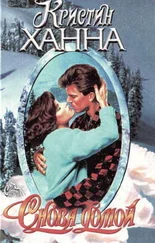They filed out of the hotel and gathered in the street. There were fewer than fifty of them altogether. Natalia got into the driver’s seat of Jack’s truck and started the engine. Jack stood in the wooden-slatted bed of the truck and faced the small gathering. “The world can be changed by a handful of courageous people. Today we fight on behalf of those who are afraid. We fight for a living wage.” He yelled out, “Fair pay! Fair pay!”
Loreda held her sign in the air and chanted with him. “Fair pay! Fair pay!”
The truck rolled forward; the strikers followed. Jack reached down for a megaphone and amplified his chant. “Fair pay! Fair pay!”
Elsa and her children and the strikers walked behind the truck, listening to Jack.
They passed a Lucky Strike billboard. Several of the people living beneath it stood up, ambled across the brown field, and joined the strikers.
A quarter of a mile later, a group of clergymen joined them, holding up signs that read MINIMUM WAGE FOR WORKERS!
At every new road or camp, more people joined. Their voices rose up. Fair pay! Fair wages!
More people merged in.
Elsa turned at one point, saw the crowd. There had to be six hundred people here now, all coming together to fight for a decent wage.
She elbowed Loreda, cocked her head so Loreda would look back and see the people behind them.
Loreda grinned and chanted louder. “Fair pay! Fair pay!”
Jack and the Workers Alliance were right. The growers would have to treat the workers fairly if they wanted their cotton picked before the weather changed and frost ruined the crop. This wasn’t about being a Communist or a rabble-rouser. This was about fighting for the rights of every American.
A mile later, they turned a corner, nearly a thousand of them now, marching and chanting, signs held high, and neared the entrance to Welty Farms. The road stretched out in front of them, a straight line, bordered on each side by fenced cotton fields. A single man waited for them, stood in the middle of the road.
Welty.
Natalia stopped the truck directly in front of him.
Still standing in the back of the truck, Jack spoke to the huge crowd through the megaphone. “This is your day, workers. Your moment. The owners will hear you. They can’t ignore so many of you saying, No more .”
Loreda responded loudly, shouting, “No more! No more!”
The crowd joined in, waving their signs for emphasis.
“We will be peaceful, but we will stand our ground,” Jack said through the megaphone. “No more being pushed around and starved. You deserve a fair day’s wage for a day’s work.”
Elsa heard the rumble of engines. She knew the rest of them heard it, too. The chanting faded.
“Go into the field,” Jack said. “Sit down. Break down the gate if you must.”
Elsa turned, saw a hay truck full of workers pull up behind the strikers. The driver honked the horn to be let through.
“Strikebreakers. They’re here to take your jobs,” Jack said. “Don’t let them in.”
The crowd spread out, blocked the truck’s path to the gates with their bodies.
“No work! Fair pay!” Jack shouted.
Welty walked around to the side of Jack’s truck and faced the strikers. “I’m paying seventy-five cents today,” he said. “Who wants to feed their family and move into one of my cabins? Who wants credit at the company store come winter and a mattress to sleep on?”
“Hell, no!” Jack yelled.
A roar of agreement rose up from the crowd.
A truck appeared on the road behind Welty, drove toward the strikers. A man exited the truck, carrying a rifle casually over one shoulder. He walked to the field and opened the gate.
“They aren’t gonna shoot. We ain’t done nothin’ wrong,” Ike called out. “Stay strong!”
The man with the rifle went to the top of the guard tower and aimed his gun at the strikers.
“He can’t shoot us for nothin’,” Ike yelled. “This is still America.”
More trucks full of migrant workers willing to pick for seventy-five cents pulled up behind the strikers, honked to be let through.
“Don’t let ’em through,” Jack yelled.
Sirens.
Police cruisers and cars and trucks barreled down the distant road, creating a cloud of dust. One by one they turned onto this road, and parked in a straight line that created a blockade in front of Jack’s truck.
The doors opened. Masked men stepped out of the vehicles, holding clubs and bats and guns.
Vigilantes. Ten of them.
Policemen stepped out of their cruisers, guns drawn.
The vigilantes walked slowly forward.
The crowd of strikers backed away; the chanting quieted.
“Men wear masks because they’re ashamed of what they’re doing,” Jack said through the megaphone. “They know this is wrong.”
Elsa stared at the masked men coming toward her and the children. She held her children close, began to back away.
“Mom, no!” Loreda cried.
“Hush,” Elsa said, pulling Loreda closer.
“Stand your ground,” Jack said. He looked directly at Elsa, said, “Don’t be afraid.”
Three vigilantes jumped up into the back of Jack’s truck. One cracked Jack in the back with his bat. Jack dropped the megaphone and staggered forward. The vigilantes grabbed Jack by the hair and dragged him out of the truck; one of them cracked Jack in the head with the butt of his rifle. Jack dropped to his knees.
“Get to work,” Welty yelled. “This strike is over.”
The vigilantes circled Jack, began beating and kicking him.
The workers backed away; some edged toward the cotton field. The strikebreaker trucks honked to be let through.
“Elsa!” Jack yelled, and was kicked hard for it.
She knew what he wanted. They’ll listen to you.
Elsa climbed up into the back of the truck and took up Jack’s megaphone and faced the strikers. Her hands were shaking. “Stop!” she cried out.
The workers stopped backing away, looked up at her.
She was breathing hard. Now what?
Think.
She knew these people, knew them. They were her people. Her kind, the Californians said derisively, but it was a compliment.
They were like her. Today, they were part of a new group: people who stood up, used their voices to say No more. They’d woken in the middle of the night, hungry, to stand up for their rights, and now it was Elsa’s time to show her children what her grandfather had taught her long ago. She wrapped her fingers around the soft velvet pouch at her throat. Saint Jude, patron saint of desperate cases and lost causes, help me.
“What?” someone yelled.
“Hope,” Elsa said. The megaphone turned her whispered word into a roar that quieted the crowd. “Hope is a coin I carry. An American penny, given to me by a man I came to love. There were times … in my journey, when it felt as if that penny and the hope it represented were the only things that kept me going. I came west … in search of a better life … but my American dream has been turned inside out by hardship and poverty.” She looked at Welty. “And greed. These years have been a time of things lost: Jobs. Homes. Food. The land we loved turned on us, broke us all, even the stubborn old men who used to talk about the weather and congratulate each other on the season’s bumper wheat crop. ‘A man’s got to fight out here to make a living,’ they’d say to each other.”
Elsa looked out at the crowd, saw all the women and children who were here, looking up at her. She saw her life in their eyes, her pain in the slant of their shoulders.
“A man. It was always about the men. They seem to think it meant nothing to cook and clean and bear children and tend gardens. But we women of the Great Plains worked from sunup to sundown, too, toiled on wheat farms until we were as dry and baked as the land we loved. Sometimes, when I close my eyes, I swear I can still taste the dust.”
Читать дальше












